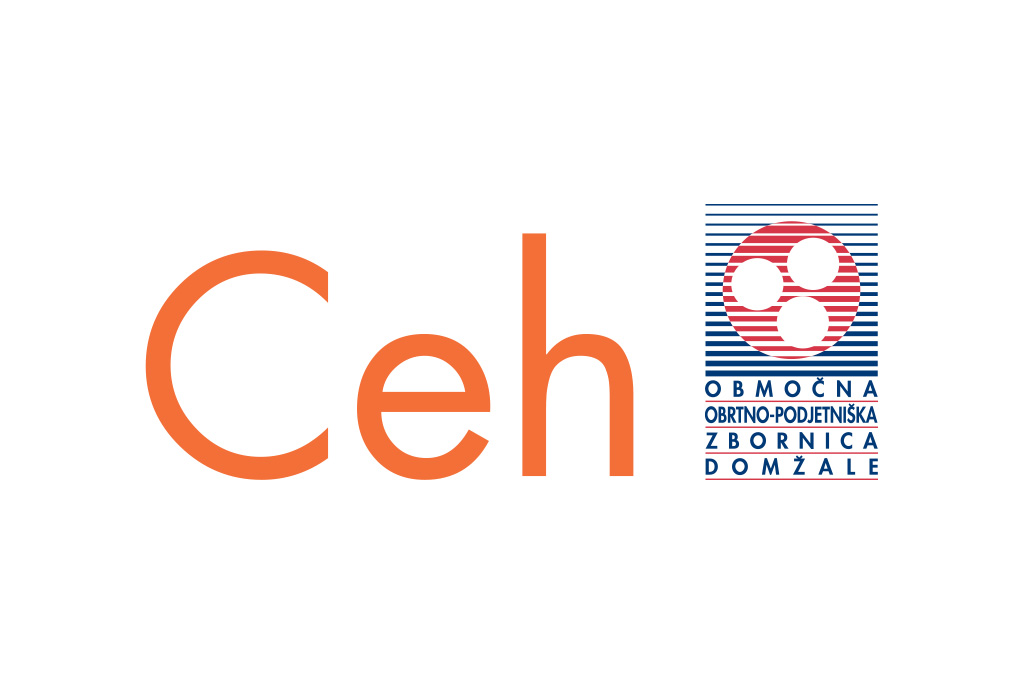First, a little explanation for those who know too little about the chemical nickel plating process to even know what it is: it is a current-free process that prevents rusting or corrosion, with the thickness of the coating being uniform across the entire surface of the workpiece, which is the main advantage of chemical nickel plating over other galvanic protections. The requirements for galvanic processes differ from each other; for example, it used to be sufficient to simply dip a metal part (such as a screw) into an anti-corrosion solution. Today, the standards for chemical nickel plating are different and demanding to the point that the tolerance of the coating across the entire surface must be +/- 0.5 microns. Grčar’s company proves the thickness of the coating to customers by X-raying the nickel-plated items and providing a measurement protocol.
The determined, yet warm businesswoman is Mrs. Marina Grčar. Five years ago, after the sudden death of her husband, she had to take over the family business overnight and keep it on course during the turbulent years of the crisis. In a completely "male" profession, with two teenagers and without a single relative, as she is from Macedonia. Today, she could boast (but doesn't ...) that she is successfully expanding the business abroad, that they are currently the only ones in the industry with such a galvanic line capacity in Slovenia, and that her sons have grown into mature and responsible young men. But she never forgets the contribution of her employees, Janez Pavlič and Darko Povirk, without whom she wouldn’t have achieved what she has.
There are two providers of such processes in Slovenia. They are the only ones far and wide who are so responsive that they even drive from Hungary to galvanize parts. And from Austria, because fast response and exceptional precision are two key advantages for customer satisfaction. Chemical nickel plating is very useful in many industrial sectors: it gives a significant advantage in the automotive industry. It is also used in medicine, as they nickel plate equipment parts for magnetic resonance tunnel systems for Hungarian customers. It is useful in motorway tunnels on fans, where pollution is higher. In Grčar's technique, they use medium-phosphorus nickel with a phosphorus content in the solution (8-10%) and high-phosphorus nickel with a phosphorus content (10-13%), which again provides greater corrosion protection. It is also useful in the food industry, where certain parts of mills or grinders need to be protected. They also nickel plate metal parts used in tablet packaging, ensuring they are sealed (Krka d.d.). Additionally, they do locks and couplings for Titan...
It is therefore an extremely precise job, where mistakes simply cannot happen, as they cost business and reputation, emphasizes the interviewee. Therefore, not just anyone can do this work – there are no schools for it, but those who deal with it develop their own way of working, which is different from one galvanization to another, the interviewee adds. It certainly helps that she is a graduate engineer in electrical engineering.
The activity was started by the late Mr. Boris Grčar in the 1980s when he visionary predicted that the field would have prospects for development. At that time, Mrs. Marina and he did not yet know each other. In Ihan, he inherited an old house, overgrown with vines, and dedicated one room of it to galvanizing. He learned and advanced as he went, starting with galvanizing and getting to know new techniques as the business expanded. When Mrs. Marina recalls his way of working and thinking, she sees his success not only in being a visionary but also in being extremely precise. This was his great competitive advantage, which partners recognized. If nickel is not applied under exactly specified conditions, it will eventually peel off. Today, in Ihan, the most modern galvanic line for chemical nickel plating stands, and the business premises are attached to the house where the Grčar couple created their home.
Now, let’s go step by step: Mrs. Marina, who grew up as an only child in a respected family in Skopje, where her parents built their home, came to Slovenia at the invitation of Iskra. At that time, Iskra had a policy of inviting prospective engineers from each country where it planned to open a branch, to Kranj for training. Then, they returned to their home countries to continue developing for Iskra in foreign markets. Mrs. Marina’s story would likely be the same if war hadn’t soon started after her arrival in Slovenia, which was spreading like wildfire toward the south, so her parents advised her to stay in Slovenia. And she stayed for good. When she met Boris, they built a home in Kranj, had two sons, Erik and Marko, aged 19 and 18 today, and were building in Ihan. So, just a few weeks before Erik started school, they still didn’t know where he would attend, but on September 1st, they spent their first night in Ihan. Around 2007/8, her husband decided to make a large investment, worth 0.5 million euros. That was the cost of the new chemical nickel plating line. Mrs. Marina had just agreed with her husband to stay home for the good of the family and not commute to Kranj every day. Of course, as they planned, it didn’t go that way even for a single day, as she got involved in the business. And when her husband Boris unexpectedly passed away at the end of 2010, it was extremely helpful that she had some knowledge of the business.
Looking back today, she honestly doesn't know how she managed, she admits. She couldn’t mourn, she thought about the children, and also about all the clients whose pressure was highest at the end of the year. They didn’t even tell anyone that there had been a death in the house; just before Christmas, they professionally completed all the orders. For Mrs. Marina, the weight of all the bureaucratic obstacles around the company and inheritance piled on, and she had to go from one office to another to keep the business going. She was also understandably worried about how she would pay off the loan, as orders began to decline due to the crisis. And what would happen if she got sick, or something worse... When, after several months, almost a year, she won all the legal and administrative battles, and saw that the ship wouldn't sink under her command, she broke down. She was overwhelmed, and she openly shows her vulnerable side.
Perhaps that’s why she is so successful in business, because when the load comes from Hungary, she always makes sure the driver has a place to stay at the Krona hotel. She knows they can’t wait, so they complete the nickel plating in one day. She takes the driver to lunch, they translate their orders using Google Translate. They write them on napkins... When the customer comes to inspect the work, they look for a translator who not only translates but also entertains the table. At the same time, she keeps working hard to be fair and a good boss to both workers, a good mother to her sons, and recently, a wonderful daughter as well. Some time ago, she took in her elderly parents to ensure peace in their twilight years. An enthusiastic, communicative, and open entrepreneur, an exceptional manager, she has plans for the future: she wants the company to grow and expand, hoping one day her sons will take it over. So that she can enjoy it and that the hard work her father put into it lives on through their ambitions and hard work. Because only the closest family knows how much care and effort went into the business so that today they can proudly say what they have created.

